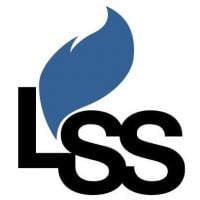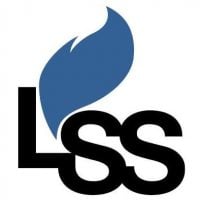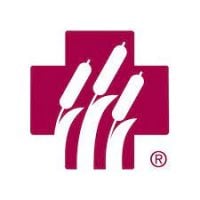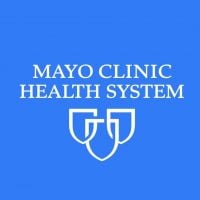Hudson Hospital and Clinics Programs for Change
Drug Rehab Center in Hudson, Wisconsin
Hudson Hospital and Clinics Programs for Change is a Wisconsin-based addiction treatment facility providing aftercare support, drug rehabilitation, and intensive outpatient care for people recovering from opioid, substance abuse, and drug addiction, with private health insurance accepted to aid in the cost of treatment.
About This Hudson, WI Facility
Hudson Hospital and Clinics Programs for Change is a comprehensive addiction treatment facility in Hudson, Wisconsin. It is dedicated to helping individuals struggling with opioid addiction, drug addiction, and substance abuse. They provide a range of personalized treatment plans, from intensive outpatient and outpatient levels of care to aftercare support. Furthermore, they accept most major private health insurance plans.
At Hudson Hospital and Clinics Programs for Change, individuals receive custom-tailored addiction treatment plans. The facility offers individual and group counseling, cognitive behavioral therapy, and medication management. They also provide family support and education. In addition, the facility holds accreditation from the Joint Commission and is licensed by the Wisconsin Department of Health Services. With a supportive and caring environment, the facility is committed to helping individuals achieve sobriety and long-term recovery.
Genders
Ages
Modality
Additional
Conditions and Issues Treated
Rehab centers exist in Hudson, WI to help individuals bounce back from substance abuse, which is an umbrella term for drug and alcohol addiction. Drug addiction refers to the use of illegal drugs and improper use of prescription drugs. Centers like Hudson Hospital and Clinics Programs for Change provide individuals a chance to access individual and group therapy that can be monumental for recovery.
Substance abuse includes all problems that stem out from using various psychoactive substances. It is also a diagnostic term used by Diagnostic and Statistical Manual of Mental Disorders (DSM-IV) to define the mental and physical impairment or distress caused by misuse and overuse of certain substances in a period of 12 months.
Opioid addiction involves addiction to legal or illegal opioids. It may happen very quickly with any opioid use. Sometimes within a matter of days. Opioid addiction is a known as a high-risk factor for future heroin addiction.
Opioid withdrawal can be extremely uncomfortable and lead the user to continue to use even if they want to quit. Stopping using an opioid requires careful medical observation. Sometimes the withdrawal can persist for many weeks, which can put the user at a high risk for relapse.
It is recommended to receive inpatient treatment and a medically supervised detox like those offered at Hudson Hospital and Clinics Programs for Change in Hudson, WI, WI, to manage the withdrawal process while learning lasting tools to maintain recovery. In some circumstances medications can be used to manage opioid addiction.
Levels of Care Offered
This center offers a variety of custom treatment tailored to individual recovery. Currently available are Aftercare Support, Drug Rehab, Intensive Outpatient, Outpatient, with additional therapies available as listed below.
Intensive outpatient programs are an integral part of the continuum of care for people addicted to drugs and alcohol. Most intensive outpatient programs in Hudson, WI comprise a 3-hour session three times a week. Usually, the intensity of these programs diminishes over time. These programs offer a range of services, including counselling, medical treatment, and monitoring alcohol and drug use. The programs are ideal for people who do not need treatment at an inpatient or residential facility and continue to need extended care and support.
Outpatient treatment is treatment that occurs when a patient is not checked into a rehab facility. The patient may show up for therapy sessions, go through detox and engage in other therapies to help them recover. However, they will do so while they live at home in Wisconsin.
Outpatient therapy provided by Hudson Hospital and Clinics Programs for Change is usually recommended as a follow up to inpatient therapy. It helps patients adapt to their normal lives after treatment. In some cases, it can also be an alternative to inpatient treatment. People may choose this route if they are unable to leave their jobs, children or if they don’t have the money for inpatient treatment. However, inpatient treatment is the best way to recover from addiction.
Aftercare support involves the support given to a Hudson, Wisconsin patient after they complete treatment. It helps them adjust to normal life. It may include setting them up in a halfway house and enrolling them in programs like Narcotics Anonymous (NA) and Alcoholics Anonymous (AA). Hudson Hospital and Clinics Programs for Change‘s patients may also be provided with career training to help them get back into the job force.
Hudson Hospital and Clinics Programs for Change‘s Therapies & Programs
Family therapy is a set of therapeutic approaches that assumes that the entire family is a system. It utilizes the strengths and resources of the family to help the patient refrain from resorting to substance abuse. It helps to repair relationships and improve communication between family members.
Group therapy happens at Hudson Hospital and Clinics Programs for Change in a controlled group environment, as opposed to a one-on-one setting. It supports Hudson, WI patients’ recovery by offering a sense of comfort and letting them know that they are not alone. Through shared conversations, patients also learn to develop faith and understanding and gain insight on their addictions.
Unresolved trauma is often a key reason why many patients resorted to substance abuse. Trauma therapy refers to treatment wherein specialist therapists help the patients to resolve the trauma that led the patients to substance abuse. The trauma could be physical abuse, sexual abuse, war, natural disasters, divorce, accident, loss of a loved one, etc. Thinking of these traumatic events causes emotional disturbances like anxiety, depression and results in addiction. If trauma is the primary cause of substance abuse, then both issues must be addressed. Otherwise, there is a risk of relapse. Trauma therapy also improves the cognitive functions and provides long term benefits.
Cognitive behavioral therapy (CBT) is a way of addressing concerns through talking. It can be used in individual counseling sessions. Talking through issues with professionals at Hudson Hospital and Clinics Programs for Change can identify sources of discomfort or unhealthy thoughts. It is a way of learning about yourself and your individual perceptions. CBT is a healthy way of addressing some behaviors which may be bringing unintended consequences in your life.
Rational Emotive Behavior Therapy (REBT) sees a person suffering from substance addiction to have illogical reasoning, counterproductive actions, and does not see things clearly. Due to this, REBT deals with cognition, images, and behavior extensively to rectify the client’s bad habits. REBT pushes an individual to become more reasonable and choose a life without the repercussions of addictions.
Patients at Hudson Hospital and Clinics Programs for Change in Hudson, WI learn how to self-soothe by conducting rational self-counseling. REBT provides their patients with the skill sets necessary in handling problems all by themselves, without seeking professional help. The process calls for practice, reiteration, and bolstering the new way of thinking being introduced to the patient.
Contingency management is a way to help motivate someone to remain substance free. It is a process of rewarding positive choices and good outcomes. As humans we are wired to recreate experiences that lead to positive feelings. Through this method incentives are used for completing positive steps towards a sober life. This may be a reward for attending meetings, remaining sober or for employment goals.
Payment Options Accepted
For specific insurance or payment methods please contact us.
Is your insurance accepted?
Ask an expert, call (888) 674-0062
Additional Details
Specifics, location, and helpful extra information.
Hudson, Wisconsin 54016 Phone Number(715) 531-6755 Meta DetailsUpdated November 25, 2023
Staff Verified
Patient Reviews
There are no reviews yet. Be the first one to write one.
Hudson, Wisconsin Addiction Information
Wisconsin has some of the highest rates in the United States for both adolescent and adult substance abuse. Since 2009, the state has been experiencing the same escalating rates of drug abuse and addiction as the rest of the country. The major concerns are the misuse of prescription painkillers and the escalating number of deaths due to alcohol-related liver disease.
Heroin and marijuana are both popular drugs in Hudson, Wisconsin. Prescription painkillers are also a major problem, with more than 2 million prescriptions written for opioids each year. The number of people admitted to treatment for heroin addiction increased by 70% between 2010 and 2014. There are many addiction treatment facilities in Hudson, WI, so there is no excuse not to get help.
Treatment in Nearby Cities
- Brookfield, WI (265.2 mi.)
- Lancaster, WI (177.7 mi.)
- Kewaunee, WI (259.7 mi.)
- Osceola, WI (25.0 mi.)
- Stevens Point, WI (158.4 mi.)
Centers near Hudson Hospital and Clinics Programs for Change
The facility name, logo and brand are the property and registered trademarks of Hudson Hospital and Clinics Programs for Change, and are being used for identification and informational purposes only. Use of these names, logos and brands shall not imply endorsement. RehabNow.org is not affiliated with or sponsored by Hudson Hospital and Clinics Programs for Change.









